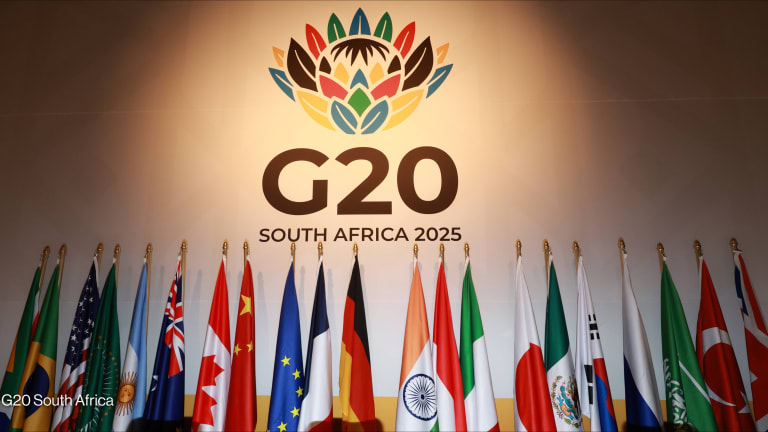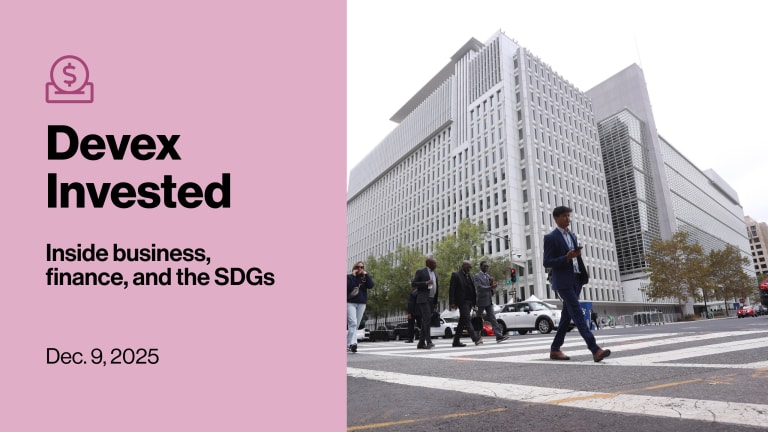
Emerging market and developing economies could face significant headwinds in 2022, with debt loads becoming increasingly burdensome at a time of rising inflation, interest rate hikes, and the withdrawal of state support, the World Bank warned in a new report Tuesday.
The world’s lowest-income countries will have to make some $35 billion in debt service payments this year, with the costs likely to hurt their development.
The “Global Economic Prospects” report for 2022 said that “vulnerable countries will find it increasingly difficult to support recovery or direct resources to health, education, social protection, and climate,” adding that the risk of a “hard landing” is increasing.
The bank is urging wealthy nations to come up with new debt relief mechanisms and wants them to ensure private sector creditors are forced into the deal. The predictions come as the outlook for global growth is sharply diminished. Economic expansion is expected to slow to 4.1% this year, down from a 5.5% rebound in 2021.
Inflation, now expected to run higher than previous estimates, and supply chain bottlenecks are part of the problem, along with the general trend away from government financial support that was doled out in the early stages of the COVID-19 crisis.
The bank said that within the developing world, women and unskilled workers saw some of the hardest repercussions, including unemployment and losses in earnings. School closures are expected to have permanent negative effects for youngsters.
The trends point to a widening divergence between the rich and poor, not only at the global level but within countries. This inequality also stems from how wealthy countries were able to behave during the pandemic.
“Advanced economies are borrowing really unprecedented amounts of money, so that leaves less for new investment in developing countries,” World Bank President David Malpass told reporters on a conference call Tuesday. More working capital is needed for lower-income countries to help reverse a shrinking of the private sector, he said.
The International Monetary Fund also warned this week that emerging markets are facing difficult economic prospects in 2022. It is expected to lower its global growth forecasts in a report out later this month.
Across the developing world, economic activity is likely to return to pre-pandemic averages, the World Bank said. Since many nations have not fully recovered from the crisis, this means they are not going to make up the lost ground.
“By 2023, annual output is expected to remain below the pre-pandemic trend in all EMDE regions, in contrast to advanced economies, where the gap is projected to close,” the report said, using an abbreviation for emerging markets and developing economies.
The possibility of more COVID-19 variants poses additional economic risks, while many low-income countries still have abysmal vaccination rates, further hamstringing their recoveries.
Already, the health crisis has reversed years of gains against poverty, and a “canyon” is growing between high- and low-income countries, according to Malpass.
“People in the developing world [are being] left behind and poverty rates [are] rising,” he said.
“Debt relief is much needed for the poor countries. If we wait too long, it will be too late and won't be successful,” Malpass said.
He urged China, a major creditor to the developing world, to get more involved in debt relief. Given the size of their balance sheets, Chinese lenders have the latitude to help low-income countries weather the year ahead, he said.
“Advanced economies are borrowing really unprecedented amounts of money, so that leaves less for … developing countries.”
— David Malpass, president, World BankOn the vaccine front, Malpass said one of the main challenges for low-income countries is ensuring that the supplies they receive have significant life spans. “What the poorer countries need the most is delivery schedules where there is remaining useful life on the vaccines,” he said.
Malpass has previously criticized donors for sending vaccines too close to their expiration dates, forcing recipient countries to scramble in getting the doses into people’s arms. In some cases, vials were simply wasted.








